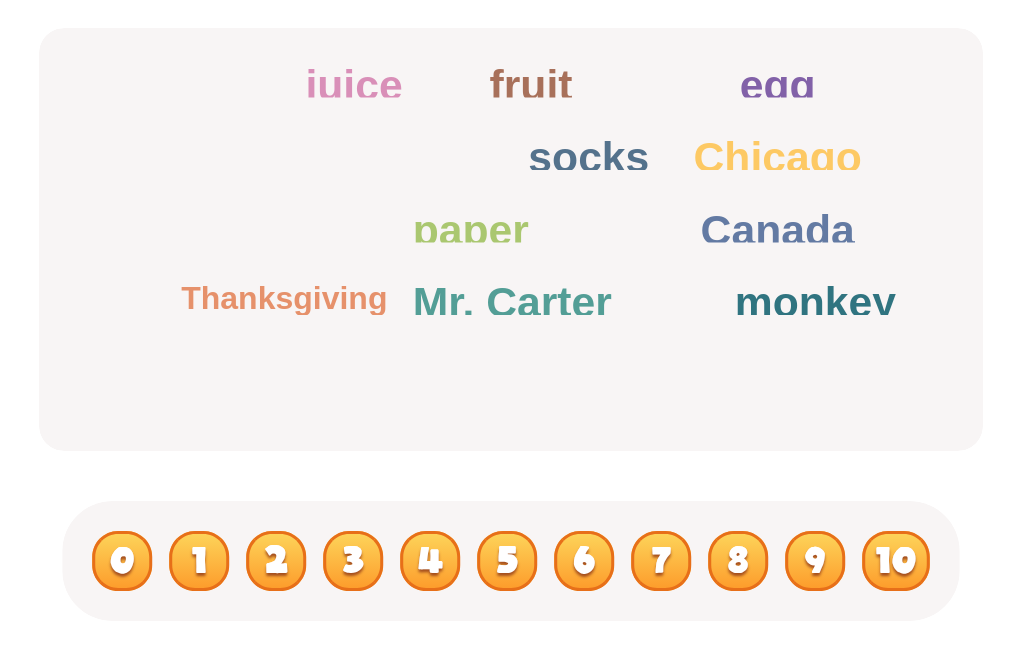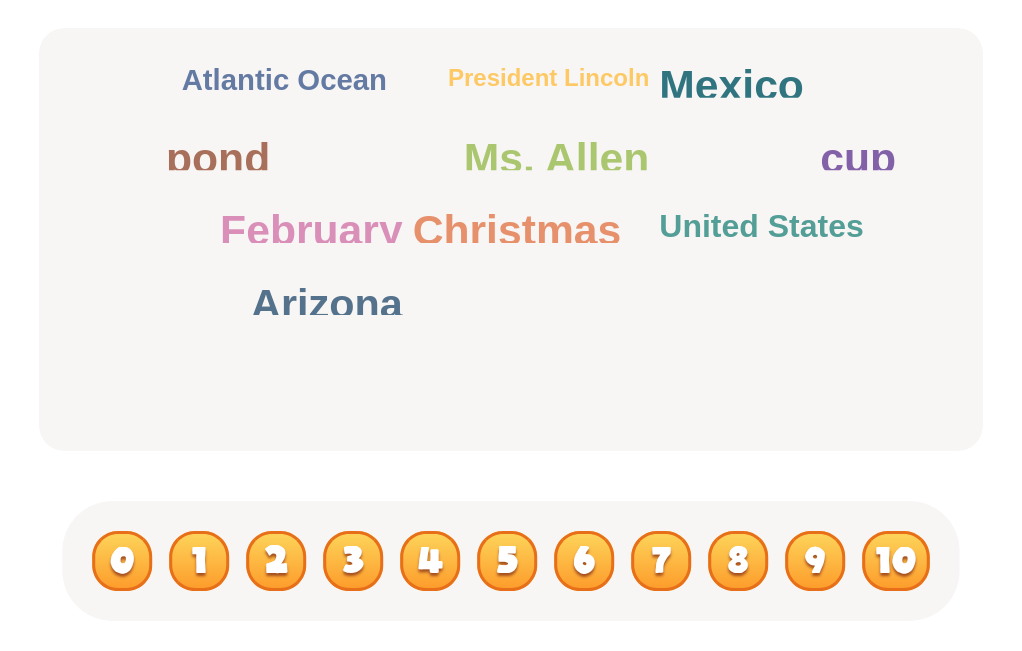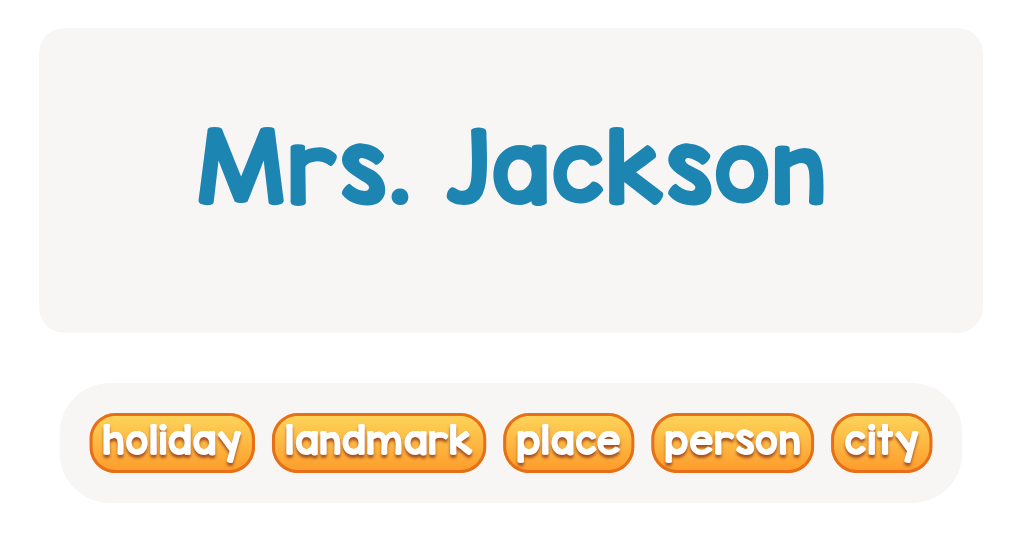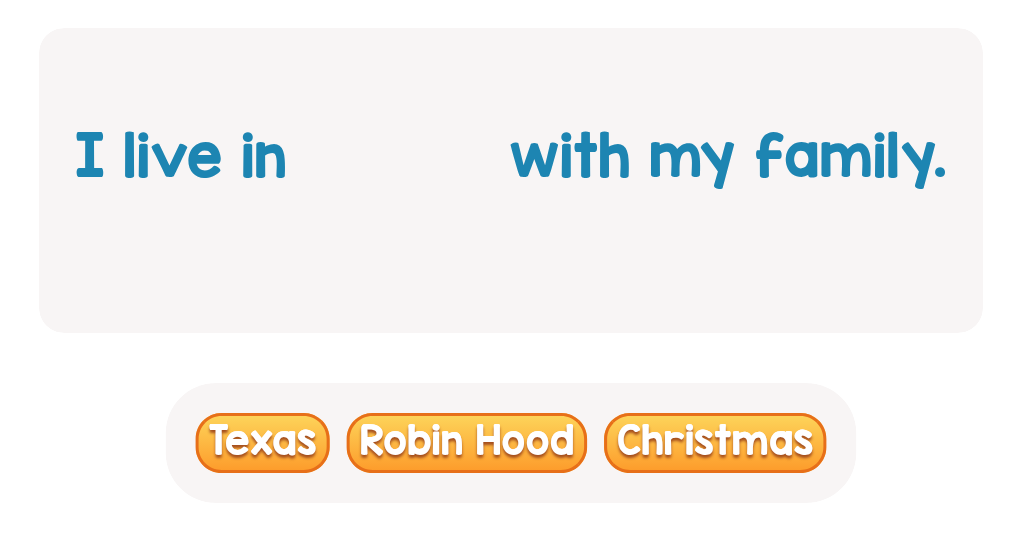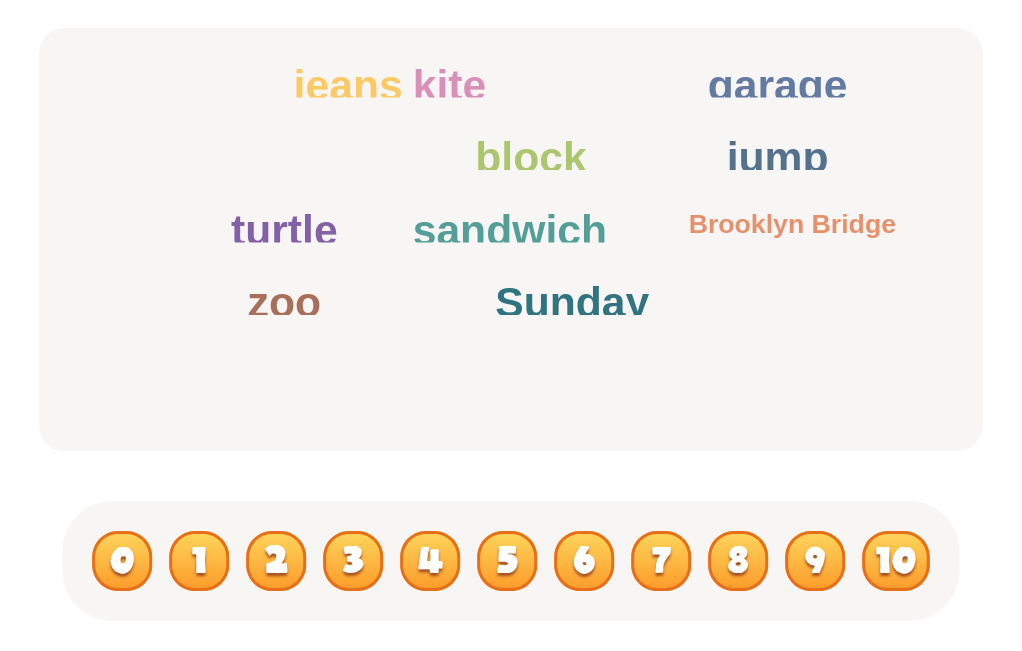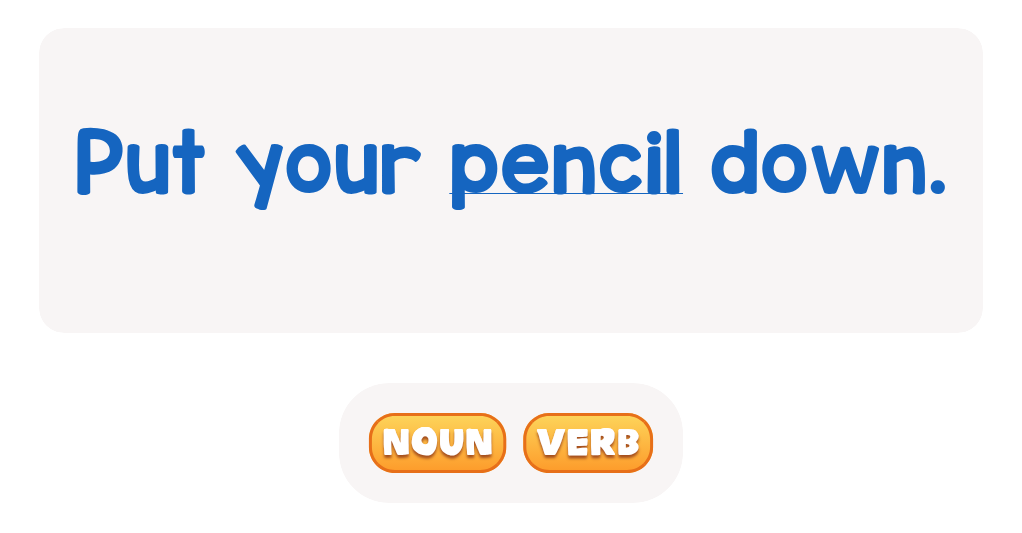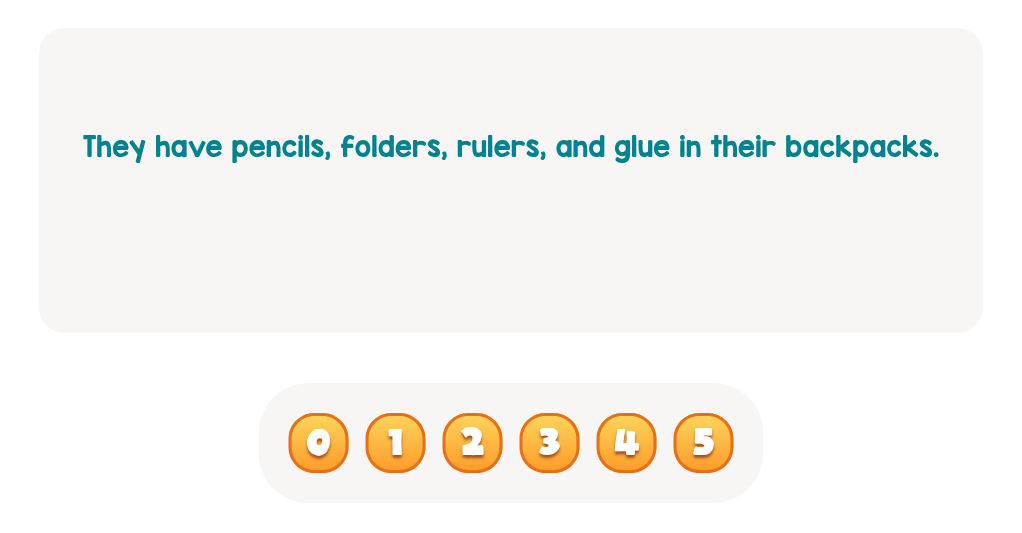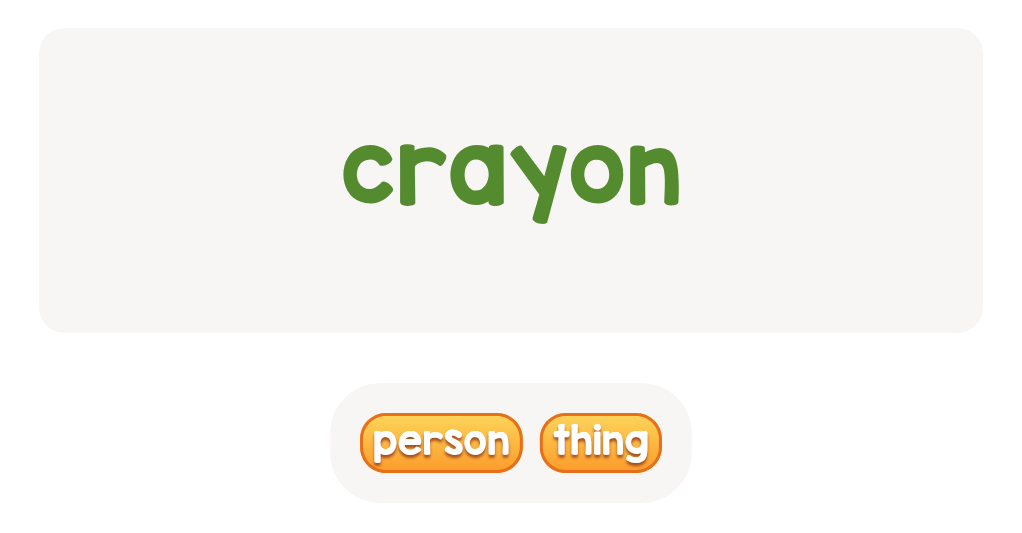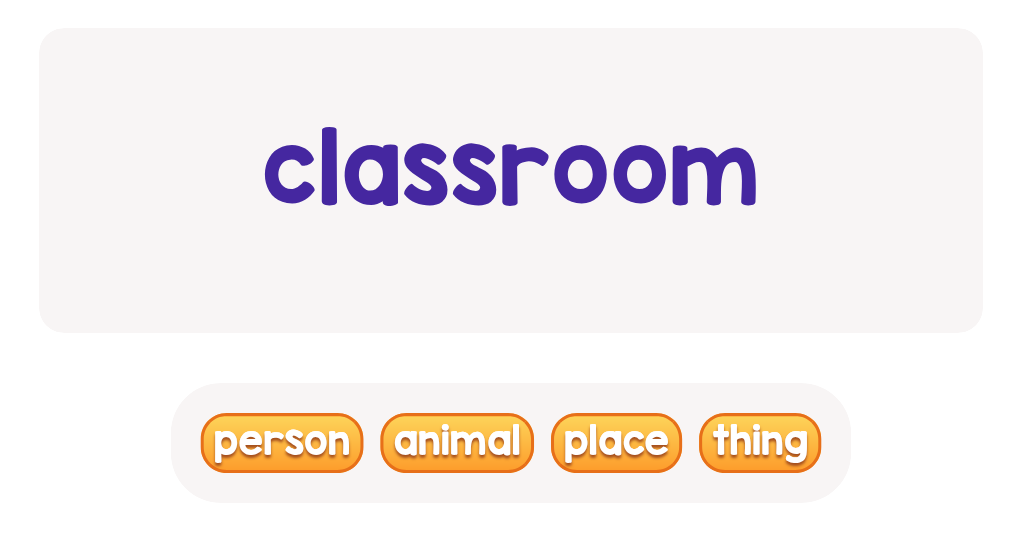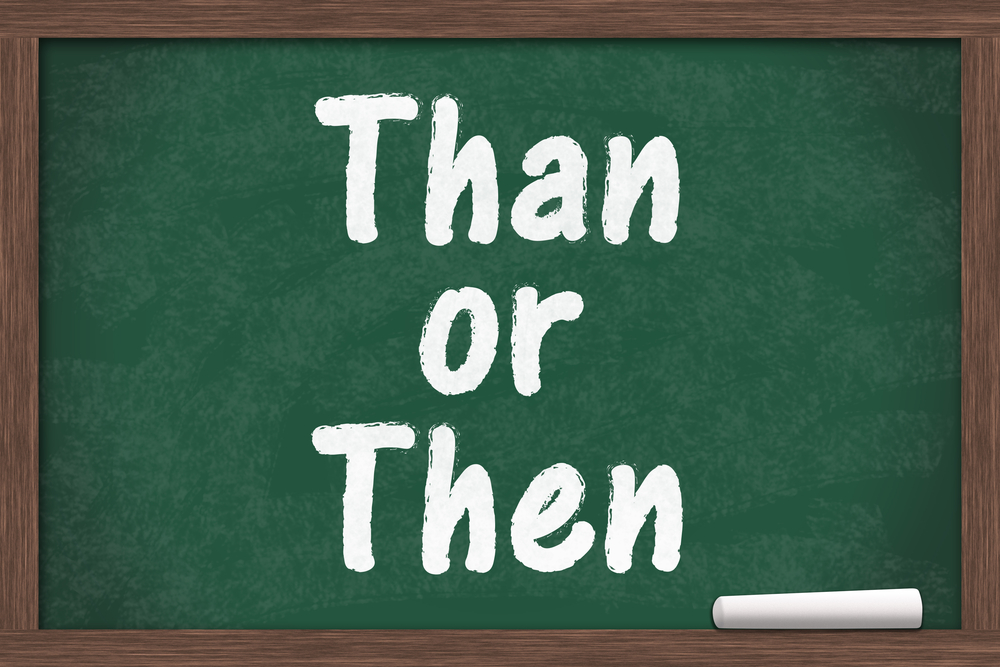Spelling Skills Grammar Worksheets for Ages 3-9
5 filtered results
-
From - To
Welcome to our Spelling Skills Grammar Worksheets designed for children ages 3-9! These engaging worksheets are crafted to boost your child’s spelling and grammar abilities through fun activities and exercises. Each worksheet incorporates colorful illustrations and interactive tasks that make learning enjoyable. Whether practicing simple words or mastering punctuation, our resources cater to various skill levels and promote foundational language skills. Parents and teachers can use these worksheets to create a well-rounded learning experience, advancing children’s confidence in writing and communication. Explore our collection and watch your child’s spelling skills soar while they play and learn!
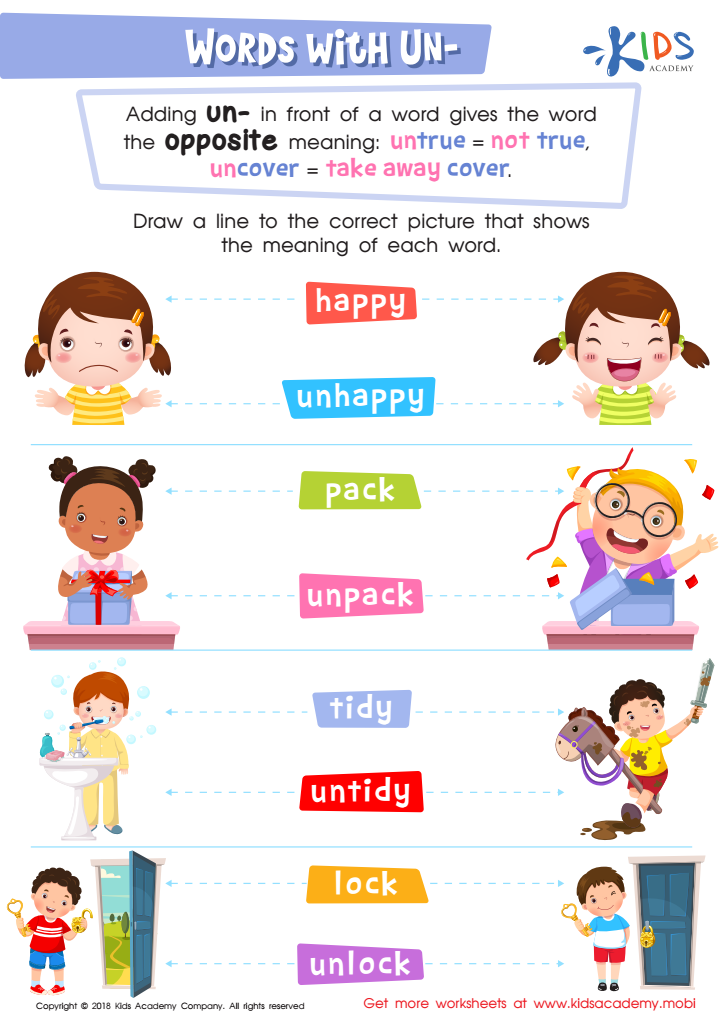

Words with Un– Worksheet
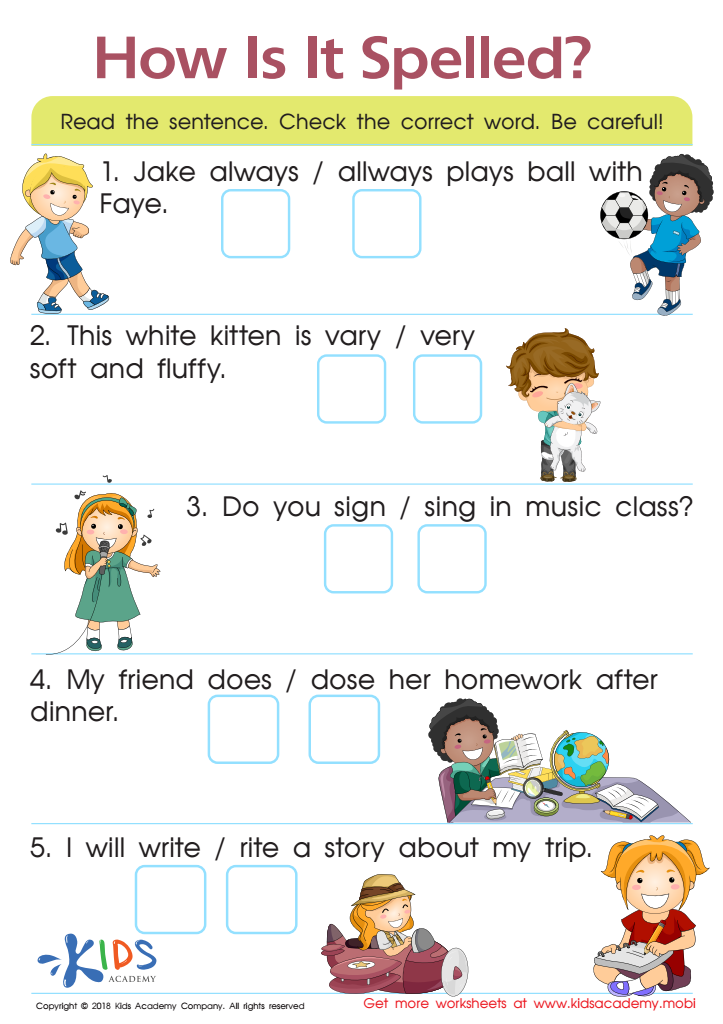

How is it spelled? Worksheet


Phonics and Word Recognition: Assessment 2 Worksheet
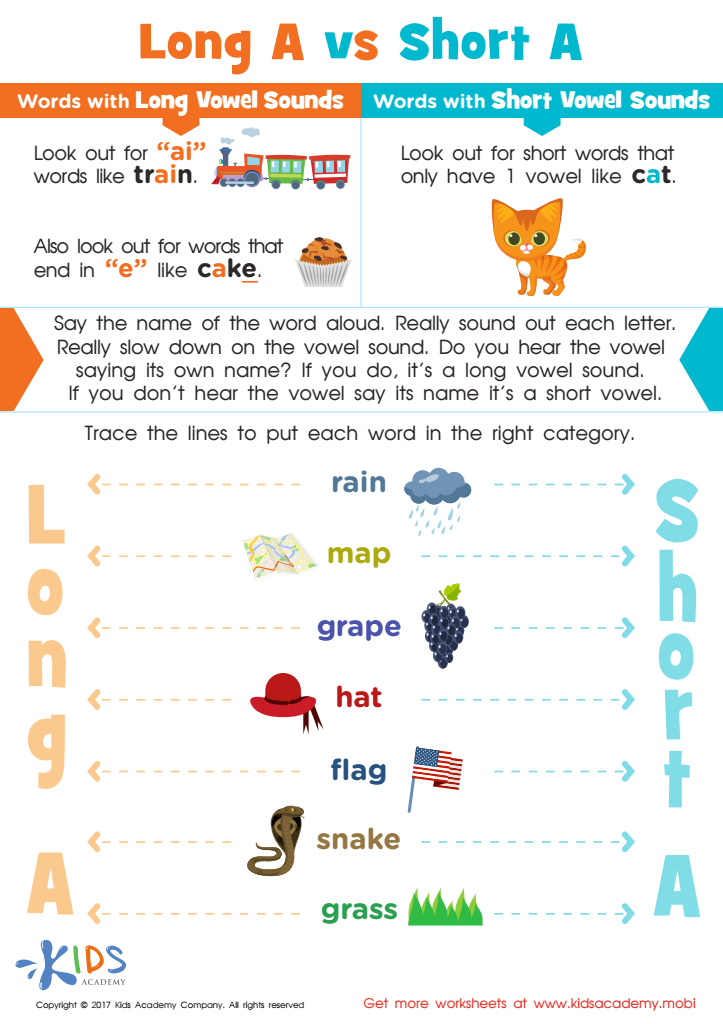

Long and Short Vowel A Spelling Worksheet
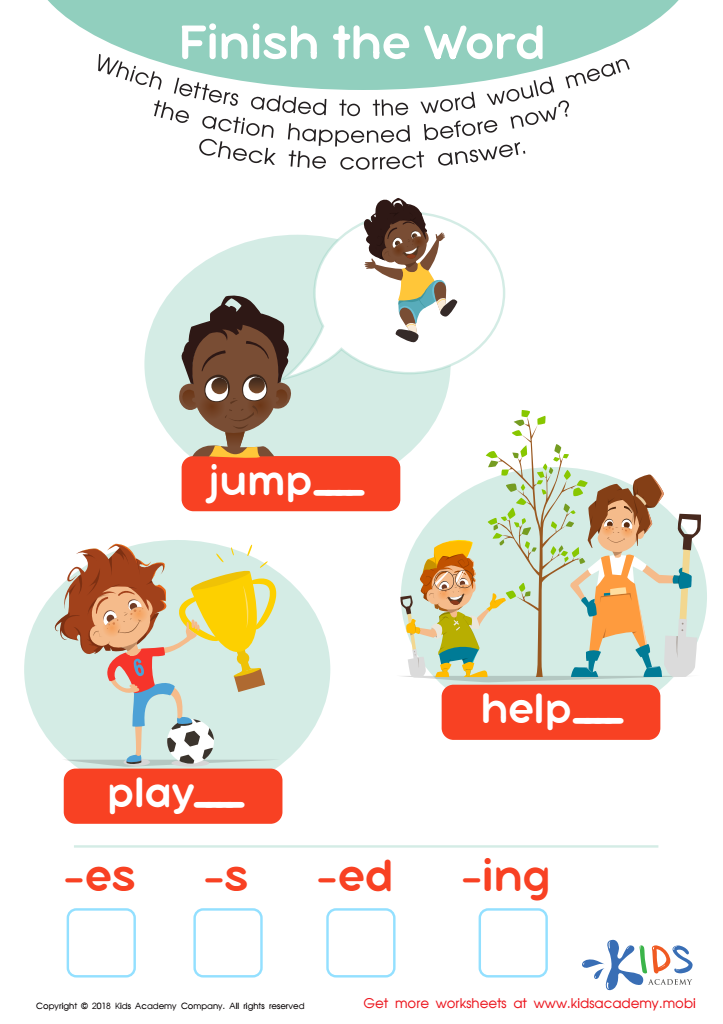

Finish the Word Worksheet
Parents and teachers should prioritize spelling and grammar skills for children ages 3-9 because these foundational skills lay the groundwork for effective communication and literacy development. At this age, children are incredibly receptive to learning and can absorb writing rules and structures naturally. Strong spelling skills boost confidence in reading and writing, while grammar helps them construct coherent, meaningful sentences.
Early mastery of spelling enables kids to recognize words and understand word structures, enhancing reading fluency. It fosters a love for reading, as they become more competent at decoding and engaging with text. Additionally, understanding grammar shapes their ability to express ideas clearly, promoting critical thinking and creativity.
Poor spelling and grammar can lead to misunderstandings in communication, both written and verbal, which can impact academic performance and social interactions. Developing these skills early on instills a sense of discipline and attention to detail, valuable lifelong skills.
Moreover, a focus on spelling and grammar encourages parents and teachers to cultivate positive conversations around language and literacy, reinforcing their importance throughout a child’s academic journey. By prioritizing these skills, adults actively support a child’s cognitive development, future learning, and overall confidence in effectively conveying their thoughts.
 Assign to My Students
Assign to My Students
